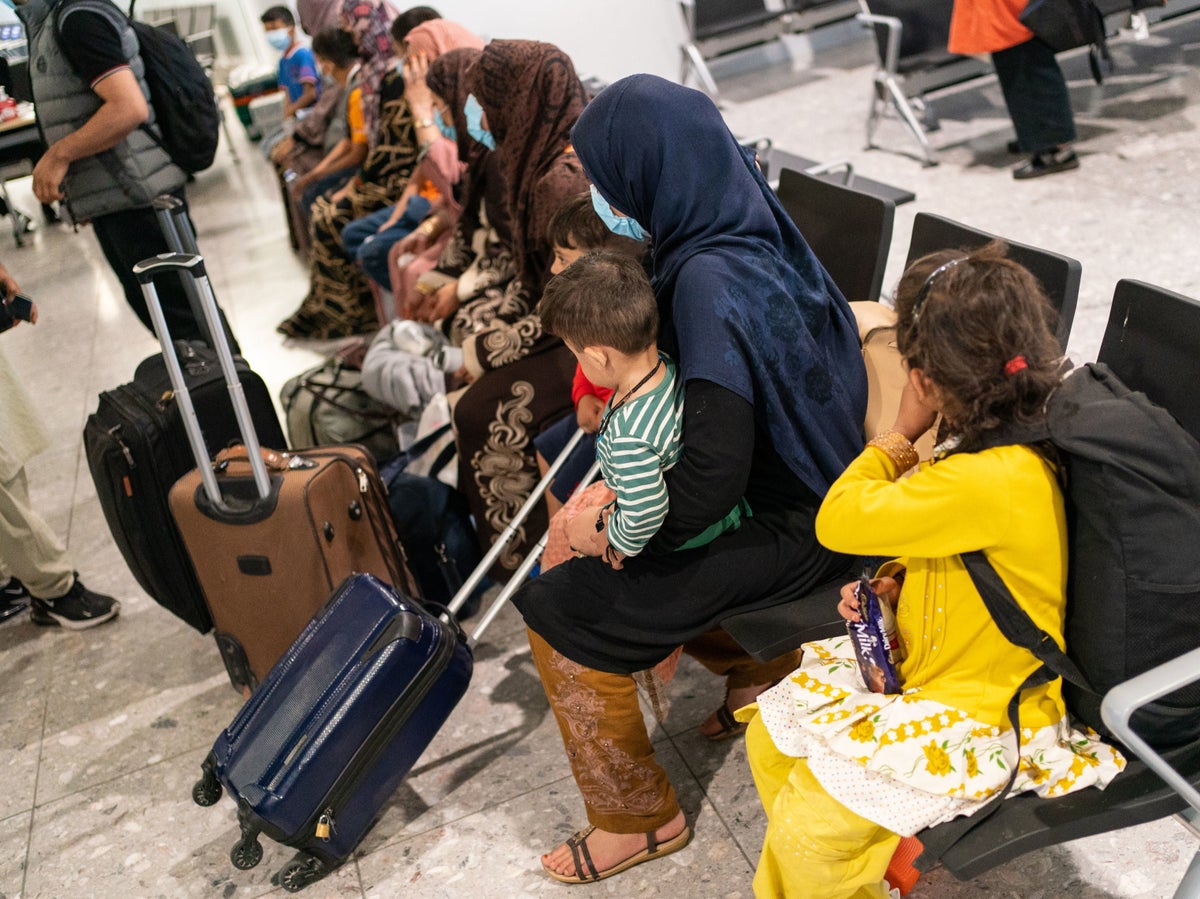
Thousands of Afghan asylum seekers being evicted from Home Office hotels face homelessness due to a housing shortage and long waiting lists, council leaders have warned.
The government announced in March that 8,000 Afghans living in the UK after fleeing the Taliban in August 2021 would have to leave their government-paid for hotels by the end of August because it could no longer help with housing.
The vast majority will not be offered an alternative place to live and will be expected to support themselves. One notice sent to those in a hotel housing around 250 Afghan families in West Sussex in May read: “If possession is not delivered up by the Notice Expiry Date, you will be a trespasser, and the Secretary of State for the Home Department shall be at liberty to evict you from the Property.”
As the August deadline looms, the Local Government Association (LGA), which represents councils in England, has warned that the timeframe for those needing to find alternative housing is too short.
Combined with nationwide housing shortages, it said councils were struggling to secure accommodation ahead of the August deadline.
Britain has ordered two more accommodation barges to house asylum-seekers, Rishi Sunak announced last month— (AFP via Getty Images)
In a speech to its annual conference in Bournemouth on Tuesday, LGA chairman Shaun Davies will say: “Councils have a proud history of stepping up and supporting asylum seekers and refugees to settle in the UK and rebuild their lives. But combined pressures from government asylum and resettlement schemes are growing on councils.”
“We are at crisis point. We want to work with the government to get this right. Not just in a way that best supports the people arriving in the UK but also tackles the unsustainable pressures on our local services and on our communities.”
The LGA will also raise the funding of councils for their support for Ukrainian refugees who have fled the war and the change to the roles and responsibilities for councils proposed in the Illegal Migration Bill that will see anyone who arrives in the UK illegally deported. It will also highlight the impact on local services of the rapid rise in numbers of new arrivals of those crossing the channel.
In May, it was announced that councils would receive £35 million in government funding to support asylum seekers living in government-funded hotels and tackle potential homelessness. A second fund, equating to £250 million, was similarly announced to help councils secure homes for Afghan asylum seekers.
Alongside this funding announcement, the Home Office iterated that hotels “were never designed to be suitable long-term accommodation” for refugees.
“Hotels are not, and were never designed to be, suitable long-term accommodation for Afghans resettled in the UK. That is why we have announced a plan, backed by £285m of new funding, to speed up the resettlement of Afghans into long-term homes,” a Home Office spokesperson said.
“Where available, the government will continue to make offers of suitable housing, which we strongly encourage Afghan families to accept. Where an offer cannot be made or is rejected, increased government support is available to help Afghans find their own homes and begin rebuilding their lives here.”
Meanwhile, last week, peers in the House of Lords attacked the Illegal Migration Bill’s plans to deport trafficking victims to Rwanda and other countries.
Concern was also expressed over its compliance with international law following home secretary Suella Braverman’s declaration to parliament that while the bill may not be compatible with the Human Rights Act, it did comply with international law.







